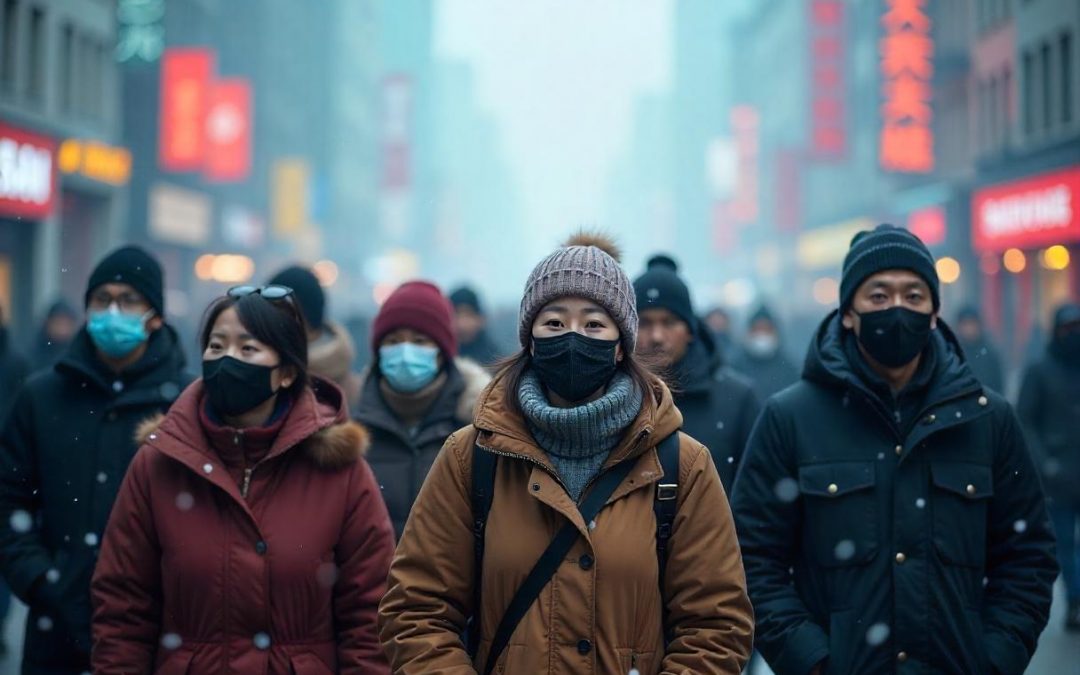As winter strategies, many humans stay up for comfortable evenings, warm beverages, and festive holidays. However, the season additionally brings a less welcome guest—negative air is great. Winter air pollution can result in smoggy mornings and a great growth in breathing issues, hypersensitive reactions, and different health concerns. If the frosty air has you feeling more unwell than festive, you’re not by myself.
When winter air greatly influences your fitness, taking an authorized day off with the help of a medical certificate for allergies can be an essential step. In this weblog, we’ll explore how negative air excellent affects your fitness, while you need to recall staying domestic, and how to at ease a medical certificate online for a strain-unfastened restoration.
Understanding Poor Winter Air Quality
Winter air great troubles are largely resulting from a mixture of climate styles and improved pollution levels.
1. What Causes Poor Air Quality in Winter?
- Temperature Inversion: During wintry weather, cold air gets trapped near the ground under a layer of hotter air. This “inversion” traps pollutants, mainly smog.
- Increased Emissions: Burning fuels for heating and expanded car utilization make a contribution substantially to winter air pollution.
- Indoor Air Pollution: Closed home windows and bad air flow lure indoor allergens like dirt mites, mold, and smoke.
2. Common Pollutants in Winter Air
- Particulate Matter (PM2.5 and PM10): Tiny debris that could penetrate deep into your lungs, causing inflammation and infection.
- Nitrogen Dioxide (NO2): Emitted by way of vehicles and heating systems, it exacerbates respiration problems.
- Carbon Monoxide (CO): A silent threat that may increase indoors from heating structures or poorly ventilated areas.
How Poor Air Quality Impacts Your Health
Poor air high-quality in winter can result in a huge range of health problems, in particular for those with pre-existing situations like asthma or hypersensitive reactions.
1. Respiratory Issues
Exposure to polluted air can aggravate the respiratory device, causing:
- Chronic coughing.
- Shortness of breath.
- Worsening of asthma or bronchitis.
2. Allergies and Sinus Problems
Dust, mould, and particulate remember can trigger allergic reactions, leading to:
- Sneezing, runny nose, and nasal congestion.
- Red, watery, or itchy eyes.
- Sinus infections and complications.
3. Cardiovascular Risks
Polluted air can have an effect on the heart, increasing the hazard of:
- High blood strain.
- Arrhythmias.
- Heart assaults, mainly in those with pre-present heart situations.
4. Fatigue and Low Energy
Prolonged exposure to negative air can bring about reduced oxygen stages, inflicting fatigue and issue concentrating.
Signs It’s Time to Take a Certified Off Day
If you’re feeling sick due to negative winter air quality, taking a detour to get better is crucial. Look out for those signs and symptoms that you might need a certified off day:
1. Persistent Allergy Symptoms
If sneezing, nasal congestion, or watery eyes persist despite over the counter treatments, your frame may want rest and better air high-quality to heal.
2. Difficulty Breathing
Shortness of breath, wheezing, or chest tightness are severe signs and symptoms that your respiratory system is struggling.
3. Headaches and Dizziness
These signs and symptoms regularly imply extended publicity to indoor or out of doors pollution.
4. Chronic Fatigue
If fatigue and low electricity prevent you from functioning usually, taking a break can help your body recharge.
The Role of a Medical Certificate for Allergies
When poor air fine or allergic reaction-associated symptoms force you to take break day paintings, a medical certificate validates your absence and ensures your health is prioritized.
What Is a Medical Certificate for Allergies?
A medical certificate for allergic reactions is a reputable report issued through a certified healthcare provider. It confirms your health circumstance and your need for rest or specialised care.
When Do You Need One?
Workplace Leave: Employers frequently require documentation for health-associated absences.
Extended Recovery: If symptoms persist beyond some days, a certificate allows formalize your want for continued rest.
Insurance Claims: Some coverage carriers may require a medical certificate for claims associated with allergies or respiratory problems.
How to Obtain a Medical Certificate for Allergies
Platforms like MedicalCertificate.In make the method of obtaining a medical certificate clean and on hand.
Step-by means of-Step Process
Step 1: Visit MedicalCertificate.In
Create an account and log in to the comfortable platform.
Step 2: Fill Out the Health Questionnaire
Provide information about your circumstance, together with:
- Symptoms and their period.
- Known allergens or triggers.
- Any medications you’re currently using.
Step 3: Schedule a Virtual Consultation
Book an appointment with an authorized physician. During the consultation:
- Discuss your symptoms and medical records.
- Share any previous hypersensitivity tests or diagnostic reviews.
Step 4: Receive Your Certificate
The doctor will trouble a digitally signed certificate that includes:
- Your analysis and remedy hints.
- The advocated period of departure.
- The medical doctor’s credentials and signature.
Step 5: Submit to Your Employer
Download and share the certificate together with your agency or HR department to validate your departure request.
Practical Tips for Combating Poor Winter Air Quality
While you can’t take away air pollution, these measures can lessen its impact in your fitness:
1. Use Air Purifiers
Invest in notable air purifiers with HEPA filters to reduce indoor pollution.
2. Stay Indoors During Peak Pollution Hours
Air pollution levels are regularly highest early within the morning and late at night time. Plan outdoor activities for noon.
3. Wear Masks Outdoors
N95 or N99 masks can filter maximum harmful debris, shielding your respiration device.
4. Keep Your Home Ventilated
Use exhaust lovers, open home windows during low-pollutant hours, and regularly clean vents to improve indoor air best.
5. Stay Hydrated
Drinking water facilitates flushing out toxins and keeps your breathing device hydrated.
6. Use Natural Remedies
Steam inhalation and saline nasal sprays can offer alleviation from nasal congestion and hypersensitive reactions.
Conclusion
Poor winter air is more than simply an inconvenience—it’s a severe fitness hazard that can exacerbate hypersensitive reactions, breathing problems, and different situations. Recognizing the signs and symptoms that your body needs rest and taking a certified off day can prevent long-time period complications.
Securing a medical certificate for hypersensitive reactions via platforms like MedicalCertificate.In guarantees you get the guide you need, whether or not it’s for place of job leave or insurance claims. Pair this with realistic measures like using air purifiers, staying interior all through top pollution, and wearing a shielding mask to safeguard your fitness.
As wintry weather sets in, prioritize your well-being. Taking proactive steps now will help you breathe easier—actually and figuratively—as the season progresses.
Click the link given below to obtain a medical certificate within 30 mins!

